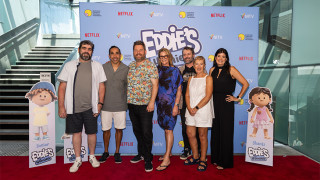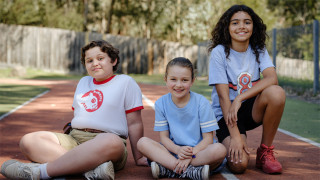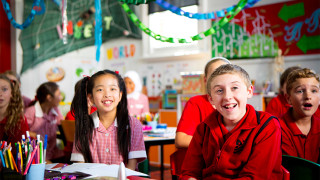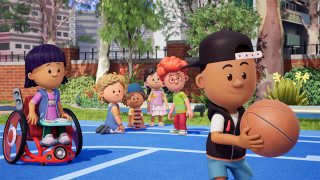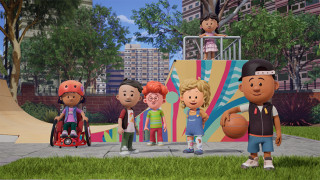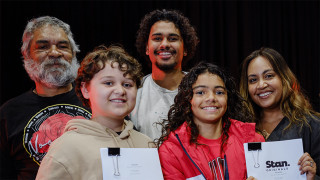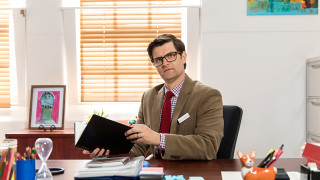Eddie's Lil' Homies team turns out to celebrate the series ahead of today's premiere
Friends and family of the team behind Eddie's Lil' Homies braved the heat to attend a special advance screening of the animated children's series, which premieres today on Netflix and NITV.
Producers of Little Lunch and The InBESTigators back with new kids' series
Australian production company Gristmill has partnered with Canada's Sinking Ship Entertainment (SSE) to bring an exciting new children's series to audiences across the globe.
World premiere of Windcatcher on Stan this Easter
The heartwarming family feature film Windcatcher, starring singer, songwriter and actress Jessica Mauboy and introducing talented newcomer Lennox Monaghan, will premiere Thursday 28 March on Stan.
Resources to build cohesion, teamwork and leadership
Teachers, build teamwork and leadership among your new students in 2024. This collection of resources will support primary and secondary teachers in fostering a positive classroom environment in Term One.
Coming up for ACTF Learning in 2024
With the new school year just around the corner, learn more about the ACTF Learning team and check out some of the key events and resources we have planned for the year.
Resources for creating a positive classroom culture
Teachers, build teamwork and leadership among your new Year 5 and 6 students with these curated clips, discussion starters and collaborative learning tasks.
World premiere of Eddie's Lil' Homies this February
The animated children’s series Eddie’s Lil’ Homies, inspired by the books of AFL legend Eddie Betts, will premiere on NITV and Netflix from 16 February 2024.
Coming in 2024: Eddie's Lil' Homies
Inspired by former AFL star Eddie Betts' popular book series, this animated children's series follows Eddie and his friends as they navigate the fun and challenges of friendship.
Exciting new projects premiering in 2024
A landmark family film featuring singer, songwriter and actress Jessica Mauboy and an animated series based on the books of an AFL legend are among the ACTF-supported projects set to premiere in 2024.
Plan your 2024 school year with the ACTF Learning Calendar
Our new planning tool enables teachers to discover Australian screen content and accompanying resources and events to support student learning throughout the year.
